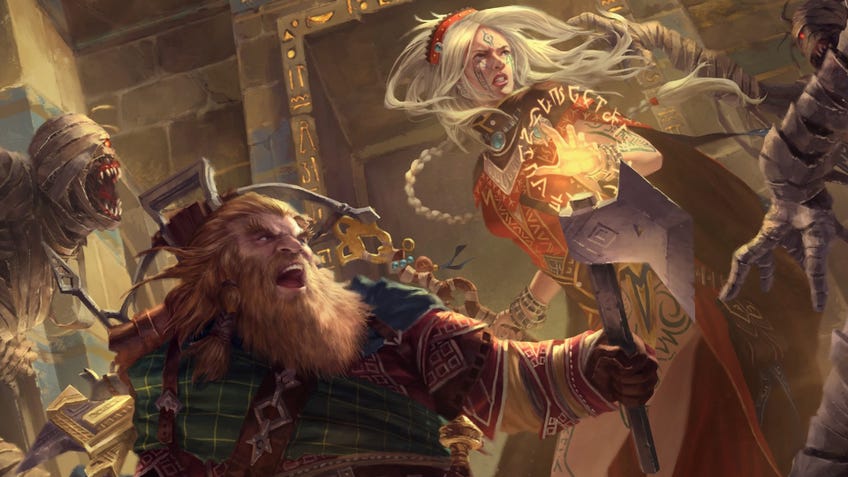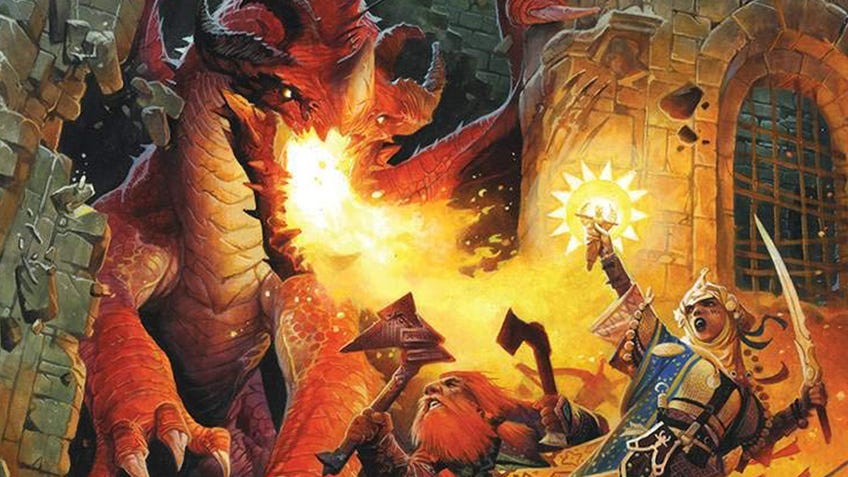Roll20, Deadlands and Numenera RPG makers join Pathfinder studio’s open game licence as D&D OGL rival gathers momentum
Over 1,500 publishers have backed the ORC so far, according to Paizo.
The open game licence launched by Pathfinder maker Paizo in response to the embattled Dungeons & Dragons OGL has already seen more than 1,500 RPG companies pledge support, according to the studio.
The Open RPG Creative Licence - ORC - was announced last week as an effort to “irrevocably and unquestionably keep alive the spirit of the Open Game License” in the wake of proposed changes to D&D’s OGL, which made the basic rules of the fantasy RPG available for third-party creators to use in their own games and supplements.
Dungeons & Dragons publisher Wizards of the Coast later rolled back the most controversial elements of OGL 1.1 - including royalty tiers for users and a licence-back structure read as allowing the company to assume control of third-party creations - before apologising and vowing to release an “irrevocable” OGL 1.2 revised through community playtesting, as well as making D&D’s core rules freely available via a Creative Commons licence.
Regardless, a number of publishers, including the likes of The One Ring and Tales from the Loop studio Free League, had already announced plans to break away from their reliance on D&D’s OGL, replacing its gameplay mechanics with their own original systems and developing their own open game licences for third-party creators.
Paizo’s own Open RPG Creative Licence is among the most prominent, billed as a system-agnostic framework that will allow any publisher to make their game’s basic rules available for others to use via a system reference document (SRD).
The Pathfinder and Starfinder studio added that while it would fund the creation of the ORC, legal control of the licence would ultimately be handed to a non-profit organisation “with a history of open source values”.

The ORC was announced with backing from publishers including Call of Cthulhu maker Chaosium, Mutants & Masterminds publisher Green Ronin and Kobold Press, which had already revealed its plans to develop a new Core Fantasy ruleset to replace its use of D&D. Paizo opened an invitation to any interested publisher, with no given launch date for the ORC.
One week on, and Paizo’s latest update on the Open RPG Creative Licence appears to mark it as an early success. According to the publisher, more than 1,500 roleplaying companies have backed the licence, ranging “from household names going back to the dawn of the hobby to single proprietors just starting out with their first digital release”.
Among the bigger names listed in the blog post are Mongoose Publishing, publisher behind the latest edition of sci-fi classic Traveller and satirical gem Paranoia; Monte Cook Games, creator of science fantasy epic Numenera; Savage Worlds and Deadlands maker Pinnacle Entertainment Group; Gale Force Nine, which has adapted Pathfinder, Starfinder, Doctor Who, Aliens, Dune and more as board games; and Pelgrane Press, known for investigatory horror RPGs Trail of Cthulhu and The Yellow King, and the GUMSHOE engine that powers them.
Alongside game publishers are a number of the biggest virtual tabletop companies, including major digital platforms Roll 20, Fantasy Grounds and Foundry VTT - all of which allow groups to play D&D online.
The consideration of virtual tabletops in Dungeons & Dragons’ revised OGL was one of its more contentious subjects. Wizards of the Coast’s latest OGL 1.2 includes a Virtual Tabletop Policy that specifies the OGL is only permitted in VTTs that “replicate the experience of sitting around a table playing D&D”, and cannot be used for anything defined under the vague descriptor of being “more like a video game”.
“Over the course of the last week, more than 1,500 tabletop RPG publishers [...] have joined together to pledge their support for the development of a universal system-neutral open license that provides a legal “safe harbor” for sharing rules mechanics and encourages innovation and collaboration in the tabletop gaming space,” Paizo wrote in its post.
“The alliance is gathered. Work has begun.”


